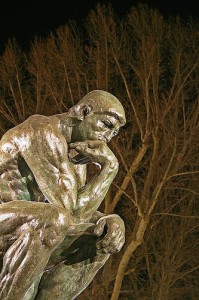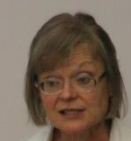 This presentation focuses on a review of the external forces and dynamics that influence the processes of learning, scholarship, research, and discovery at a large university. It examines the informational/knowledge needs, behaviours, and mindsets of users ranging from undergraduates, graduates, post-graduates, and researchers, to Nobel laureates.
This presentation focuses on a review of the external forces and dynamics that influence the processes of learning, scholarship, research, and discovery at a large university. It examines the informational/knowledge needs, behaviours, and mindsets of users ranging from undergraduates, graduates, post-graduates, and researchers, to Nobel laureates.
It maps various paths of informational needs and looks at the behaviour of users in different categories and perceived differences in different subject areas. Issues of demonstrating value, in this new environment of not needing libraries and librarians, because “everything is online” are discussed. It looks at the ways librarians presently deal with today’s user expectations.
Specific attention is given to the importance of managing user expectations during times of major change. Examples of recent changes at Bodleian Libraries (renovations, new ILS system roll out, etc.) are used to highlight the appropriate use of tools and communications timeliness.
It reviews how librarians validate their perceptions and assumptions. It discusses the value of a variety of assessment tools offered by commercial vendors. It evaluates traditional librarian strengths, skills and contributions to education, scholarship, and research. It maps these strengths against the needs and expectations of today’s information customers.
Consideration is given to skills not learned/acquired in formal university MLS programs, especially “soft” skills (presentation, public speaking, research funding processes, etc.), critical to success in librarians’ 21st Century roles. It examines if these observations are valid in institutions of different focus and size.
Lastly, it considers the future, the 21st Century. Can the profession, traditionally defined by physical collections, thrive in the digital world? Can librarians take advantage of strategic planning tools effecting sound strategic decisions (scenario planning for example) to secure a place for libraries and librarians in the institution’s future?
With homage to Aristotle, I conclude with questions to the audience. What is the “added value” of librarians’ vis-à-vis learning and research process changes? What services can libraries offer to facilitate new processes? Can East meet West…can librarians significantly contribute facilitating changes to meet users’ needs, their behaviour changes, and future expectations? Will there be 21st Century librarians?
Aristotle also said “Change is the essence of all life”.
Born in the Czech Republic. Schooled and lived in France, Canada, USA, and United Kingdom.
Professional interests: Interested in leading library organizations through major changes. Influence formation of new professionals to assure the survival of the librarianship as a profession and a library as a service organization supporting educational and research processes.
Professional work experience: Since 2009 – University of Oxford Keeper of Scientific Books and Head of Science and Medical Libraries Prior 2009 – Columbia University, New York City, USA Director, Columbia Medical Centre Library
And many years of professional librarian experience within the Columbia University Libraries in acquisitions, bibliographic control in the central services; access and technical processing in the sciences and engineering libraries.
We want to support personalisation of discovery #m111
— IATUL 2012 (@iatul2012) June 4, 2012
#m111 how to survive – how to thrive
— IATUL 2012 (@iatul2012) June 4, 2012
#m111 library’s priority must be aligned with the strategic goals of the university
— IATUL 2012 (@iatul2012) June 4, 2012
#m111 Users want convenience
— IATUL 2012 (@iatul2012) June 4, 2012
#m111 how do we find out what our users want? Surveys, focus groups, web2.0 tools etc.
— IATUL 2012 (@iatul2012) June 4, 2012
#m111 current challenges: questioning the relevancy of libraries
— IATUL 2012 (@iatul2012) June 4, 2012
#m111 current challenges: what is a library?
— IATUL 2012 (@iatul2012) June 4, 2012
Seeking options from 2000-2010; open access, special collections #m111
— IATUL 2012 (@iatul2012) June 4, 2012


They had volunteers manning their live chat (Jitters and Chatters) to manage users’ expectations when they were renovating. Voluteers. Cool.